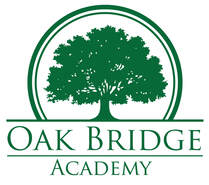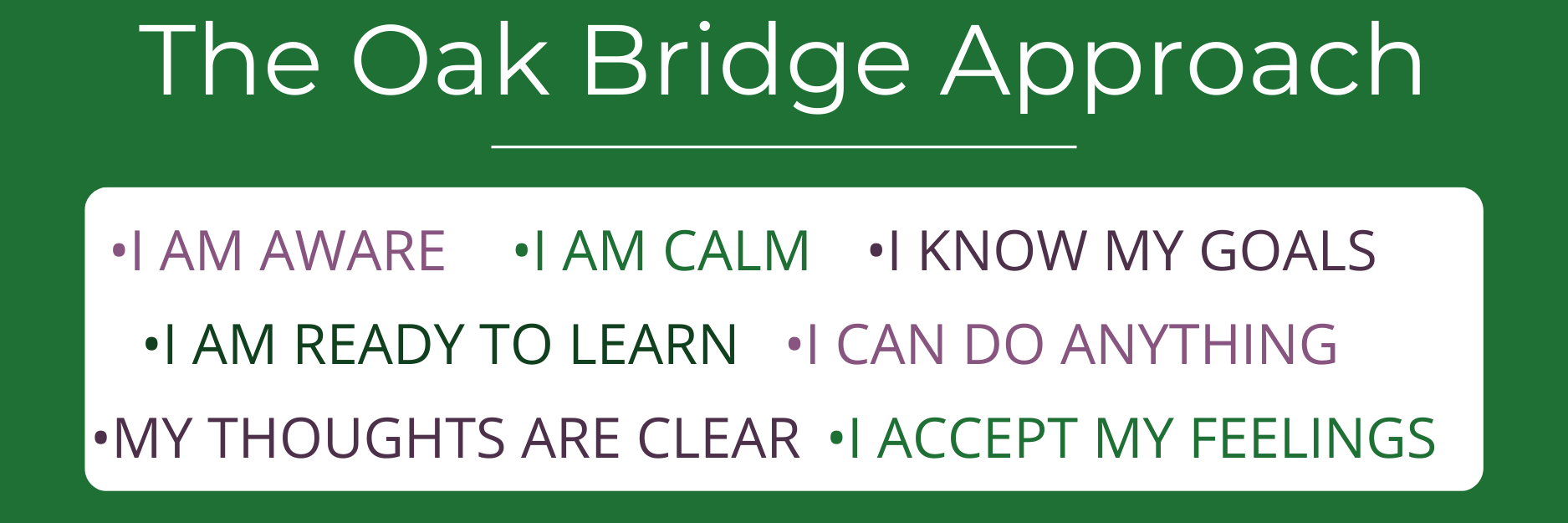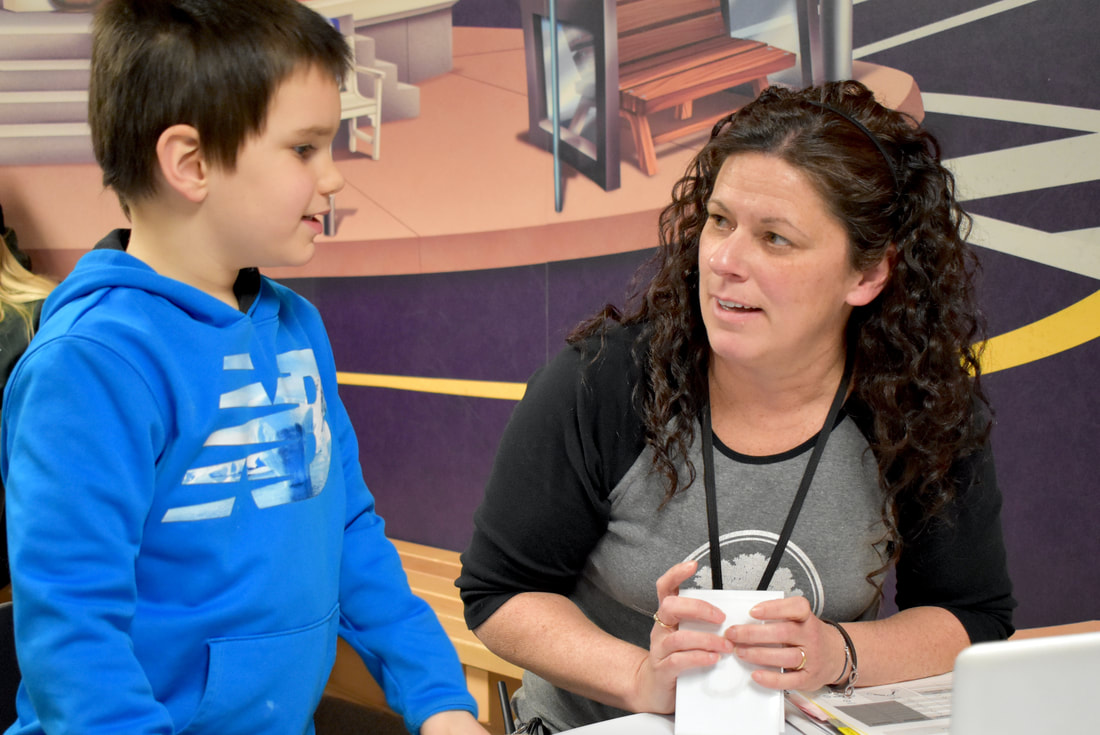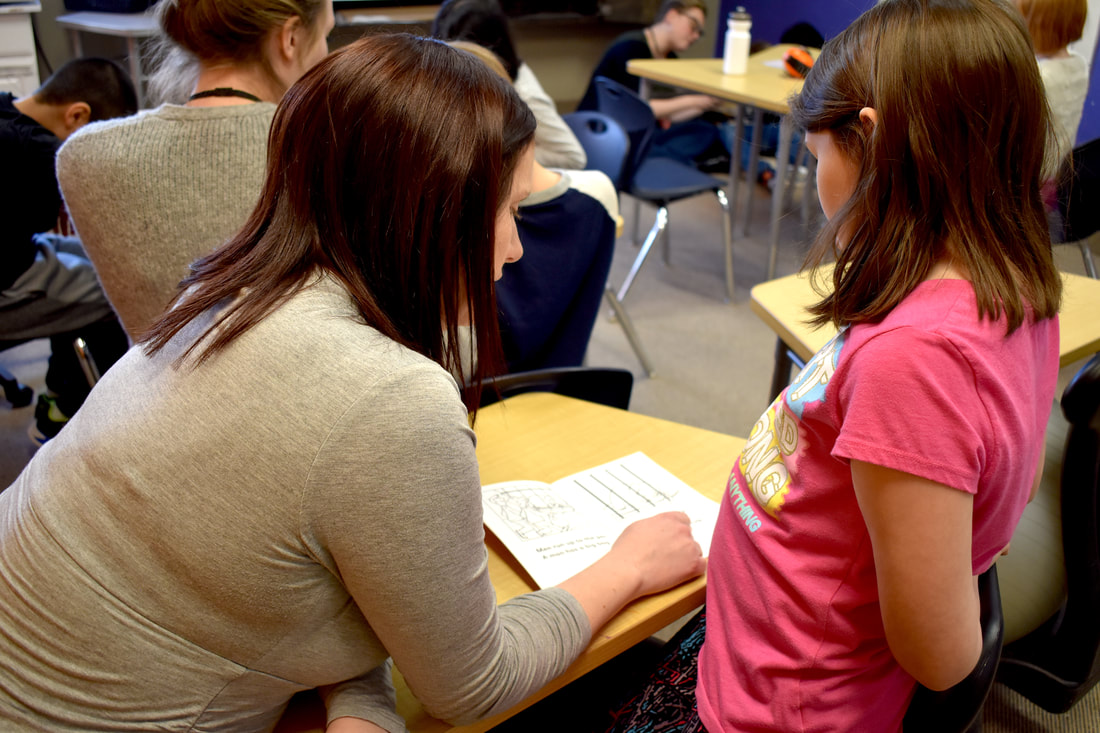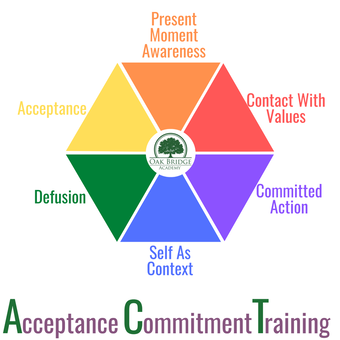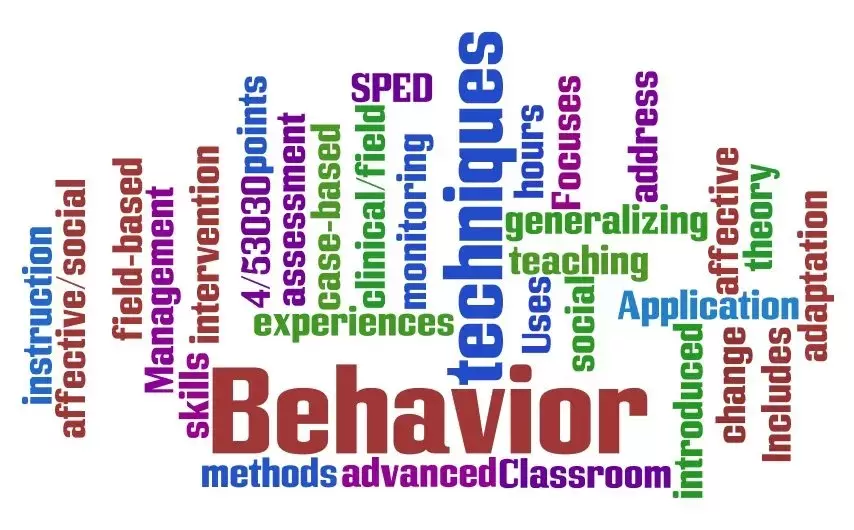The Oak Bridge Mission
Our mission is to provide specialized education to exceptional learners with the core foundation of promoting behavioural flexibility.
We provide services for children with autism spectrum disorder, attention deficit hyperactivity disorder, anxiety, and other related learning exceptionalities. Full-day, ten month (September to June) programming with high teacher-to-student ratios is offered to children from grades one through nine.
The Focus of Oak Bridge Academy is to:
Our goal is to provide students with the tools they need to flourish academically, socially and emotionally.
We provide services for children with autism spectrum disorder, attention deficit hyperactivity disorder, anxiety, and other related learning exceptionalities. Full-day, ten month (September to June) programming with high teacher-to-student ratios is offered to children from grades one through nine.
The Focus of Oak Bridge Academy is to:
- Our goal is to help and support behaviour change not to change the student
- We are values driven; our values inform us to what we do, and we realize there is a moral imperative to support our students in the best way possible following evidence-based practices
- We are committed to listening to persons with lived experiences to understand their world view and ensure our practices are aligned with this important perspective
- We are committed to continually reflect on our own practice to ensure we are listening and learning from our families and communities
Our goal is to provide students with the tools they need to flourish academically, socially and emotionally.
The Oak Bridge Philosophy
Oak Bridge Academy is an alternative school structured around the principles of Applied Behaviour Analysis designed specifically for children with neurodevelopmental disorders. Applied Behaviour Analysis focuses on the principles that explain how learning takes place, and is a scientifically validated approach to understanding behaviour and how our behaviour is affected by the environment. The core principles of behavioural science used at Oak Bridge Academy include contingency management, goal setting, self-control, mindfulness, and Acceptance and Commitment Training (ACT). Each of these principles, when used in combination, will contribute to developing a resilient and flexible student, and are described below:
1. Contingency Management:
Contingency Management also known as contingencies of reinforcement, in their simplest form, are comprised of antecedents (events that occur immediately before a behaviour/response) and consequences (events that occur immediately after a behaviour/response). This principle emphasizes the importance of:
2. Goal Setting:
Goal setting is an important process in which both students (and caregivers) will participate. Guided by his or her values, it is vital for students to make both short-term and long-term goals. The accomplishment of these goals allows the student to experience the thoughts, feelings and sensations that accompany achieving the identified goal. This in turn motivates them to set new goals that enables them to continue moving in the direction of their values.
3. Self Control:
Engaging in self-control encompasses a variety of skills that can readily be taught. When students demonstrate high levels of self-control, they are demonstrating behavioural flexibility which means they are able to hold their thoughts, feelings, memories and physical sensations lightly and engage in goal-driven actions rather than short-term impulsive actions. The goal of self-control as an outcome, is to maximize the construct of behavioural flexibility.
4. Mindfulness:
Mindfulness connects us to the present moment. It helps us learn to be less automatically reactive to intense emotional experiences, and to accept what is actually happening (whether we like it or not). By using mindfulness, we can observe what we are feeling and respond more intentionally. Mindfulness is about self-awareness and self-acceptance.
5. Acceptance and Commitment Training:
The aim of Acceptance and Commitment Training is to maximize human potential for a rich, full and meaningful life.
The 6 core processes in Acceptance and Commitment Training are:
Contingency Management also known as contingencies of reinforcement, in their simplest form, are comprised of antecedents (events that occur immediately before a behaviour/response) and consequences (events that occur immediately after a behaviour/response). This principle emphasizes the importance of:
- strong and positive antecedent strategies, as well as
- positive reinforcement as consequences after a behaviour/response.
2. Goal Setting:
Goal setting is an important process in which both students (and caregivers) will participate. Guided by his or her values, it is vital for students to make both short-term and long-term goals. The accomplishment of these goals allows the student to experience the thoughts, feelings and sensations that accompany achieving the identified goal. This in turn motivates them to set new goals that enables them to continue moving in the direction of their values.
3. Self Control:
Engaging in self-control encompasses a variety of skills that can readily be taught. When students demonstrate high levels of self-control, they are demonstrating behavioural flexibility which means they are able to hold their thoughts, feelings, memories and physical sensations lightly and engage in goal-driven actions rather than short-term impulsive actions. The goal of self-control as an outcome, is to maximize the construct of behavioural flexibility.
4. Mindfulness:
Mindfulness connects us to the present moment. It helps us learn to be less automatically reactive to intense emotional experiences, and to accept what is actually happening (whether we like it or not). By using mindfulness, we can observe what we are feeling and respond more intentionally. Mindfulness is about self-awareness and self-acceptance.
5. Acceptance and Commitment Training:
The aim of Acceptance and Commitment Training is to maximize human potential for a rich, full and meaningful life.
The 6 core processes in Acceptance and Commitment Training are:
- Contacting the present moment (the here and now): this means being present, consciously connecting with and engaging in whatever is happening in this moment
- Defusion (watch your thinking): this means learning to “step back”, and see our thoughts for what they are - nothing more or less than words or pictures
- Acceptance (open up): this means opening up to and making room for all feelings, sensations, urges and emotions
- Self-as-context (pure awareness): this means recognizing there are two elements we need to be aware of:
- The "thinking" self
- The "observing" self
- Values (know what matters): values are desired qualities of ongoing action
- Committed Action (do what it takes): this means taking effective action, as guided by our values
The Oak Bridge Academy staff will work hard to build the following sets of skills in each student…
In essence, Acceptance and Commitment Training is helping the student become a more flexible individual. Being flexible is the ability to be in the present moment with full awareness and to be able to take action as guided by our values.
The Oak Bridge Academy staff will work hard to build the following sets of skills in each student:
The CORE principle of Oak Bridge Academy is behavioural flexibility. This key skill, encompassing social skills development and emotional regulation, is at the heart of all school activities. We believe that these skills will support our students for sustained future success in both school and more importantly throughout life.
In essence, Acceptance and Commitment Training is helping the student become a more flexible individual. Being flexible is the ability to be in the present moment with full awareness and to be able to take action as guided by our values.
The Oak Bridge Academy staff will work hard to build the following sets of skills in each student:
- initiation,
- organizational strategies,
- interpersonal skills,
- collaboration,
- self regulation and
- responsibility.
The CORE principle of Oak Bridge Academy is behavioural flexibility. This key skill, encompassing social skills development and emotional regulation, is at the heart of all school activities. We believe that these skills will support our students for sustained future success in both school and more importantly throughout life.
